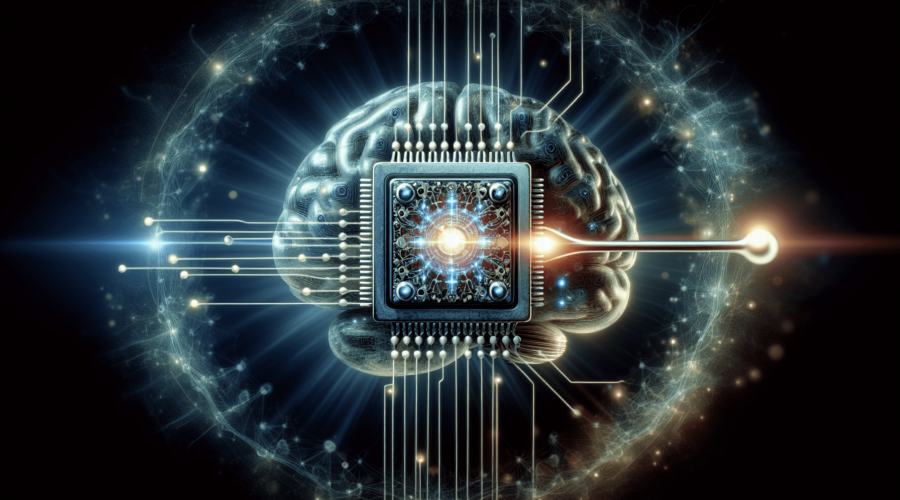In an extraordinary leap forward for artificial intelligence, researchers have made groundbreaking progress with the development of a new brain-like transistor that has the potential to mimic human intelligence. This innovative technology paves the way for advancements in AI that could reshape our interaction with machines, and perhaps even the fabric of society itself.
At the heart of this revolution lies the neuromorphic transistor. Unlike conventional transistors, which process information in a linear, binary manner corresponding to the positions of switches being either ‘on’ or ‘off’, these novel transistors operate in a fashion akin to the neurons in the human brain. They are capable of processing and responding to a range of inputs with varying intensity, much like how neurons process electrical stimuli.
This capacity for nuanced information processing means that AI systems can now handle more complex tasks that require the kind of pattern recognition and learning capabilities akin to human cognition. Enhanced sensory data interpretation, improved decision-making processes, and advanced problem-solving abilities are just a few of the capabilities enriched by this technology.
Key to the operation of brain-like transistors is their ability to adapt to new information, effectively learning from experiences. This is a trait of neural plasticity – the brain’s ability to change its connections or rewire itself, an attribute that has proved challenging to replicate in silicon-based technology until now. The innovation represents a significant stride in creating hardware that can natively support sophisticated learning algorithms without relying on vast quantities of pre-processed data, thereby reducing the load on software and computational requirements.
The potential applications of such technology are myriad. For instance, brain-like transistors could greatly augment the field of robotics, granting machines a level of cognitive flexibility previously unattainable, and enabling them to adapt to dynamic environments. In healthcare, AI with a human-like understanding could revolutionize diagnostics and personalized medicine, allowing for systems that better understand patient data and medical histories.
As we stand on the brink of this disruptive change, it is essential to consider the ethical implications and ensure that such power is harnessed responsibly. Stringent guidelines and regulations will be key in governing the development and deployment of AI systems equipped with these brain-like transistors.
The future is at our doorstep with the advent of transistors that bring us closer than ever to emulating human intelligence in machines. It is a time of great possibility, and the world watches with bated breath to see how this revolution in AI will unfold and enrich human society.
